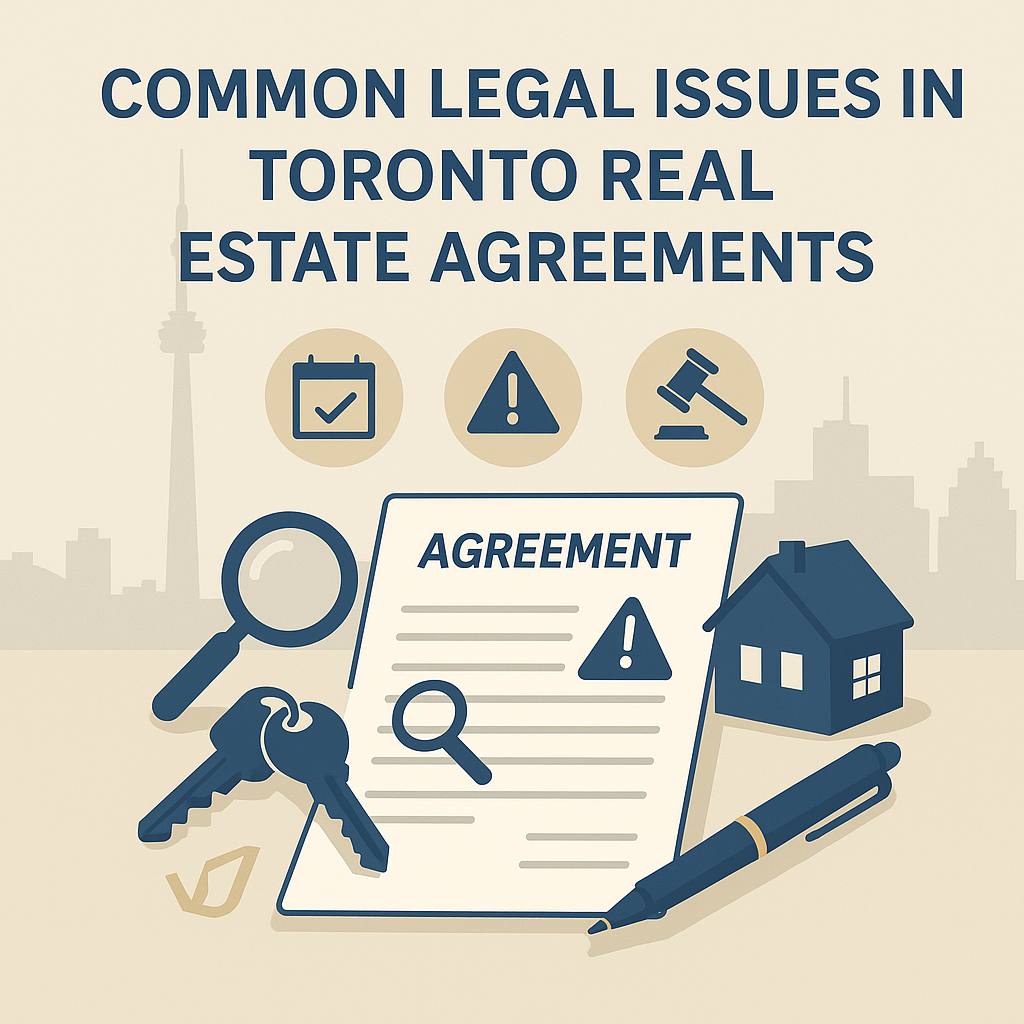Common Legal Issues in Toronto Real Estate Agreements: How to Avoid Pitfalls

Real estate transactions in Toronto can be both exciting and daunting. Whether you are buying, selling, or leasing property, it is essential to navigate the process with caution to avoid potential legal pitfalls. Real estate agreements are binding contracts that govern these transactions, and any oversight or misunderstanding could lead to costly disputes down the line. In this blog, we will explore some of the common legal issues that arise in real estate agreements and provide valuable tips on how to steer clear of these pitfalls.
Incomplete or Vague Contract Language
One of the most common mistakes in real estate agreements is the use of incomplete or ambiguous language. Unclear terms can lead to misunderstandings between parties and potentially render the agreement unenforceable. To avoid this, seek the assistance of an experienced real estate lawyer who can draft or review the contract to ensure all essential details, such as the property description, price, payment terms, and deadlines, are explicitly stated.
Failure to Perform Due Diligence
Conducting thorough due diligence is crucial before entering into any real estate agreement. This includes inspecting the property for any physical issues, reviewing title documents, survey reports, and checking for outstanding liens or encumbrances. Neglecting due diligence can expose you to unexpected liabilities or legal disputes. Engage professionals like surveyors, home inspectors, and real estate lawyers to assist you in this process.
Zoning and Regulatory Compliance
Toronto’s zoning and land use regulations can be complex and subject to change. Failure to comply with these regulations can result in serious legal consequences, such as fines, penalties, or even the need to reverse property modifications. Always ensure that the intended use of the property aligns with the zoning regulations and any required permits or variances are obtained before finalizing the agreement.
Financing and Mortgage Issues
Inadequate financing or mortgage arrangements can cause delays or even lead to the collapse of a real estate deal. Before signing any agreement, secure pre-approved financing and ensure that you understand the terms of the mortgage fully. Real estate transactions often involve multiple parties, so it is essential to coordinate with lenders, mortgage brokers, and lawyers to ensure a smooth process.
Hidden Costs and Fees
Buyers and sellers should be aware of the various costs and fees associated with a real estate transaction in Toronto. These may include land transfer taxes, legal fees, agent commissions, and more. Failure to anticipate these expenses can lead to financial strain and dissatisfaction. Seek transparency from all involved parties and factor in these costs when negotiating the terms of the agreement.
Breach of Contract
A breach of contract can occur when one party fails to meet their obligations as outlined in the agreement. This can include missed deadlines, incomplete repairs, or non-payment of agreed-upon amounts. To protect yourself from breaches, ensure that the contract includes clear remedies and penalties for non-compliance. In case of a breach, consult with your lawyer to explore options for resolution, such as negotiation or legal action.
Conclusion
Navigating real estate agreements in Toronto requires vigilance and attention to detail to avoid potential legal issues. Investing in the expertise of a qualified real estate lawyer can significantly reduce the risk of pitfalls and disputes. Remember to conduct thorough due diligence, seek professional advice, and communicate openly with all parties involved. By taking these precautions, you can enjoy a smoother and more secure real estate transaction experience in Toronto.
Read More: Real Estate Investment in Ontario: Legal Tips for Success


